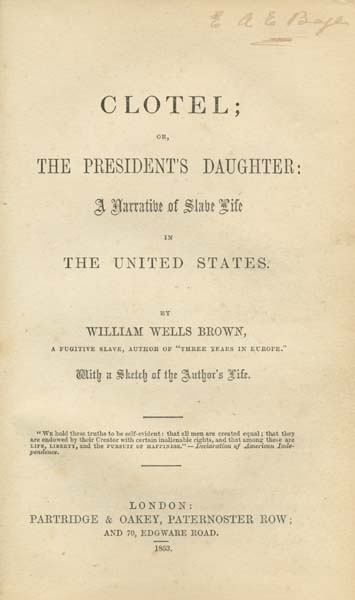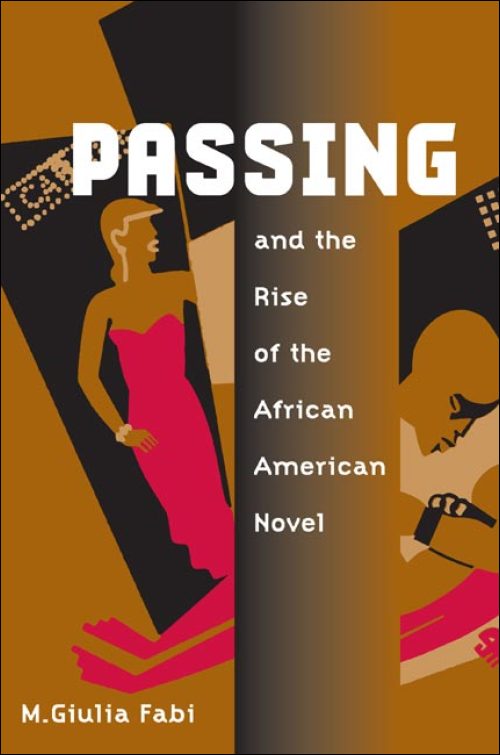Clotel or, The President’s DaughterPosted in Books, Media Archive, Novels, Passing, United States on 2014-09-29 20:42Z by Steven |
Clotel or, The President’s Daughter
Penguin Press
2003-12-30 (First published in December 1853)
320 Pages
Paperback ISBN: 9780142437728
ePub ISBN: 9781440626616
William Wells Brown (1814–1884)
Introduction by:
M. Giulia Fabi, Associate professor of American literature
University of Ferrara, Italy
First published in December 1853, Clotel was written amid then unconfirmed rumors that Thomas Jefferson had fathered children with one of his slaves. The story begins with the auction of his mistress, here called Currer, and their two daughters, Clotel and Althesa. The Virginian who buys Clotel falls in love with her, gets her pregnant, seems to promise marriage—then sells her. Escaping from the slave dealer, Clotel returns to Virginia disguised as a white man in order to rescue her daughter, Mary, a slave in her father’s house. A fast-paced and harrowing tale of slavery and freedom, of the hypocrisies of a nation founded on democratic principles, Clotel is more than a sensationalist novel. It is a founding text of the African American novelistic tradition, a brilliantly composed and richly detailed exploration of human relations in a new world in which race is a cultural construct.
- First time in Penguin Classics
- Published in time for African-American History Month
- Includes appendices that show the different endings Brown created for the various later versions of Clotel, along with the author’s narrative of his “Life and Escape,” Introduction, suggested readings, and comprehensive explanatory notes


